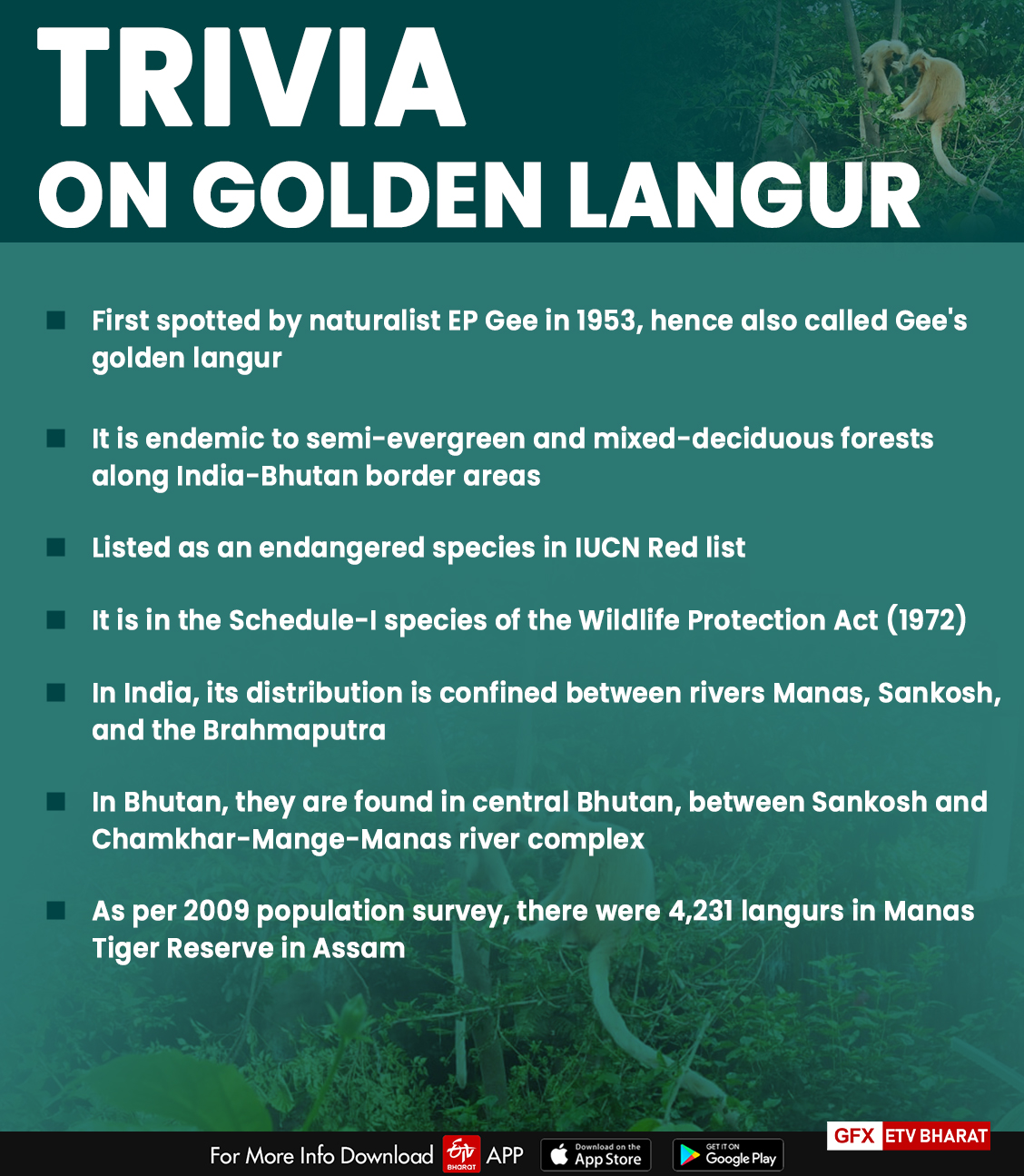Baksa (Assam): A survey was launched on Wednesday to estimate the number of golden langurs - listed in the world's 25 most-endangered primates by the International Primatological Society and the American Society of Primatologists in 2016 - inhabiting the Manas Tiger Reserve in Baksa district of Assam's Bodoland Territorial Council (BTC).
The survey is being conducted by the Bodoland Territorial Region (BTR) forest department and Primate Research Centre North East India in collaboration with a few NGOs.
The team, consisting of 24 experts from the Primate Research Centre, will be lead by Dr Jihosuo Biswas, a scientist at the Centre.
The population census conducted at the Manas Tiger Reserve in 2009 recorded 4,231 langurs, while a similar census at Chakrashila wildlife sanctuary in the year 2016 recorded 698 langurs were recorded.
"We are thinking of using two methods to conduct the survey. Firstly, we will use the block count method, wherein we will count the langurs on an individual basis. Secondly, we will use the occupancy survey method, which is why we have invited experts from Coimbatore, " said Dr Biswas while elaborating on the survey.
Citing the decline in the population of golden langurs in neighbouring Bhutan, Dr Biswas said, "We are expecting the numbers to go down during our survey, as our neighbouring country of Bhutan has recorded a 62 percent decline in the population of golden langurs as per a recent estimation."
"The golden langurs are found exclusively in the BTC area, and we all share a collective responsibility to ensure its conservation, " added Dr Biswas who has worked extensively with primates.

Golden langur is endemic to the semi-evergreen and mixed-deciduous forests along India-Bhutan border areas.
It was first spotted by naturalist EP Gee in 1953, which is why they are also called Gee's golden langur.
Also read: Three experts appointed members of NDMA
It has already been listed as an endangered species in the International Union for Conservation of Nature (IUCN) Red List and is in the Schedule-I species of the Wildlife Protection Act (1972).
In India, the distribution of this primate species is confined between the rivers Manas in the east, Sankosh in the west, the Brahmaputra in the south.
In Bhutan, their distribution is equally restricted and they are found in central Bhutan ranging between the Sankosh and the Chamkhar-Mange-Manas river complex.



